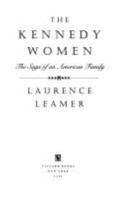Transforming Suffering into Wisdom: Mindfulness and The Art of Inner Listening
Select Format
Select Condition 
You Might Also Enjoy
Book Overview
Customer Reviews
Rated 5 starsWitness to social decline
This book is at once fascinating and heartbreaking. As a non-Catholic, I was amazed at the accomplishments of Sisters in the US. I used to see them when I was a child, knew they existed but they were mysterious and hidden to me. Reading this book, I feel we have lost something so precious and powerful. As Christianity declines, it is not so much the religion itself I miss, but some - like these - of it's powerful institutions...
1Report
Rated 5 starsSisters: gutsy, fearless, inspirational women
"Sisters" is a comprehensive look at how Catholic sistes contributed to the development and growth of the United States of America. From hospitals, to schools to homes of refuge for prostitutes, one can see that Catholic sisters are a fearless cadre of determined women who work long hours, sacrifice much and give without counting the cost. I thoroughly enjoyed reading this book and learning about the Sisters of Mercy in particular,...
1Report
Rated 5 starsWell-written history of women with guts and compassion
By the time I entered a Catholic elementary school in 1980, only one elderly sister was rumored to be residing in the church's convent. Two years later, the building was used for storage and our music room. Today, daily obituaries show how accomplished many of these women were - receiving an education that would have been unheard of for most women in the 1920s, 1930s, and 1940s. It was not until I read this book that I really...
1Report
Rated 5 stars"Where have all the Sisters gone . . . "
Boy, if this isn't an eye-opener! Not a particularly scholarly treatise (thank God), the book nonetheless chronicles well the incredible story of the impact on our American history and way of life "the Sisters" have had. Living in the "heyday" of the 50's - early 60's, and having had the blessings of a parochial education, I was not only mesmerized by Fialka's exploration of the scope and breadth and depth of the impact nuns...
1Report
Rated 5 starsExtremely interesting book, combines history and information
Sisters: Catholic Nuns and the Making of America is anoverview of the influence and contributions of nuns in thevast American land. There are a few statistics, someinterviews, and a great deal of history. History can bea very slow read. It can be to dense to wade through.But Fialka does a great job of presenting history in away that is not only interesting, but also enjoyable toread. The only sad part, of course, comes...
1Report
































![ジュラシック・パーク〈下〉 [Jurashikku Pāku Ge]](https://m.media-amazon.com/images/I/51ahBC75UyL._SL200_.jpg)
![ジュラシック・パーク〈上〉 [Jurashikku Pāku Jō]](https://m.media-amazon.com/images/I/51Kb7ACKpqL._SL200_.jpg)
![The Lost World [In Japanese Language]](https://m.media-amazon.com/images/I/51oXjMcMgnL._SL200_.jpg)









